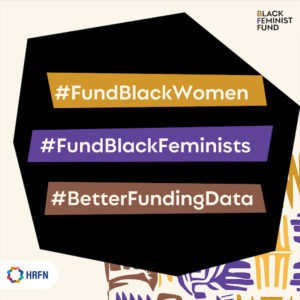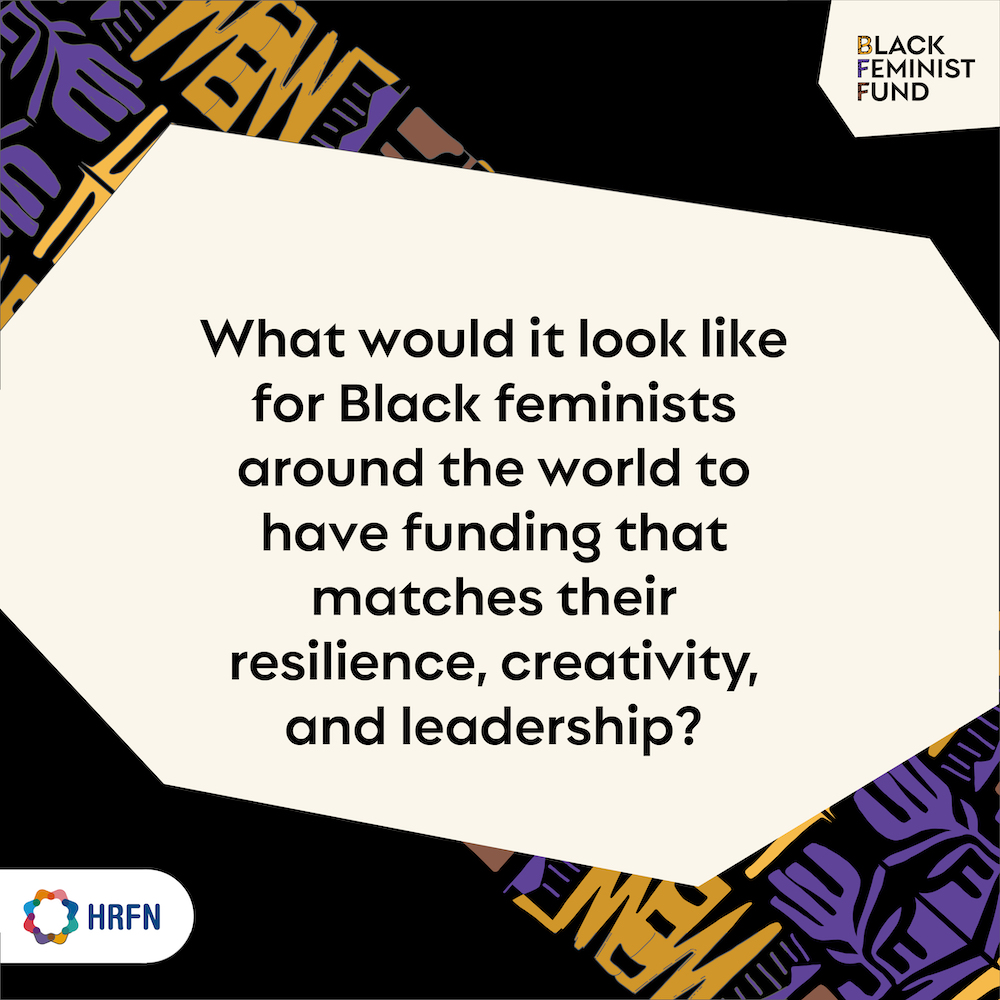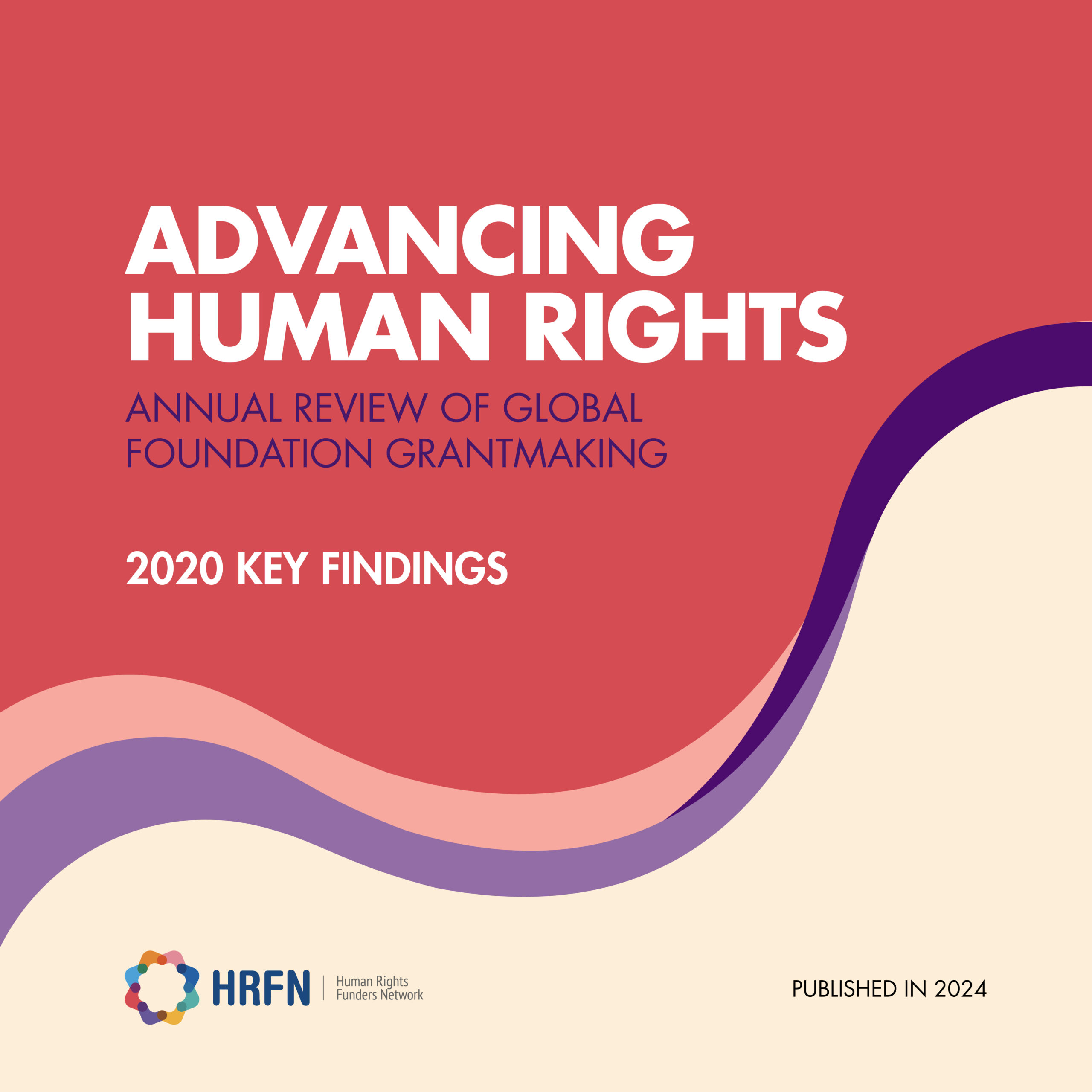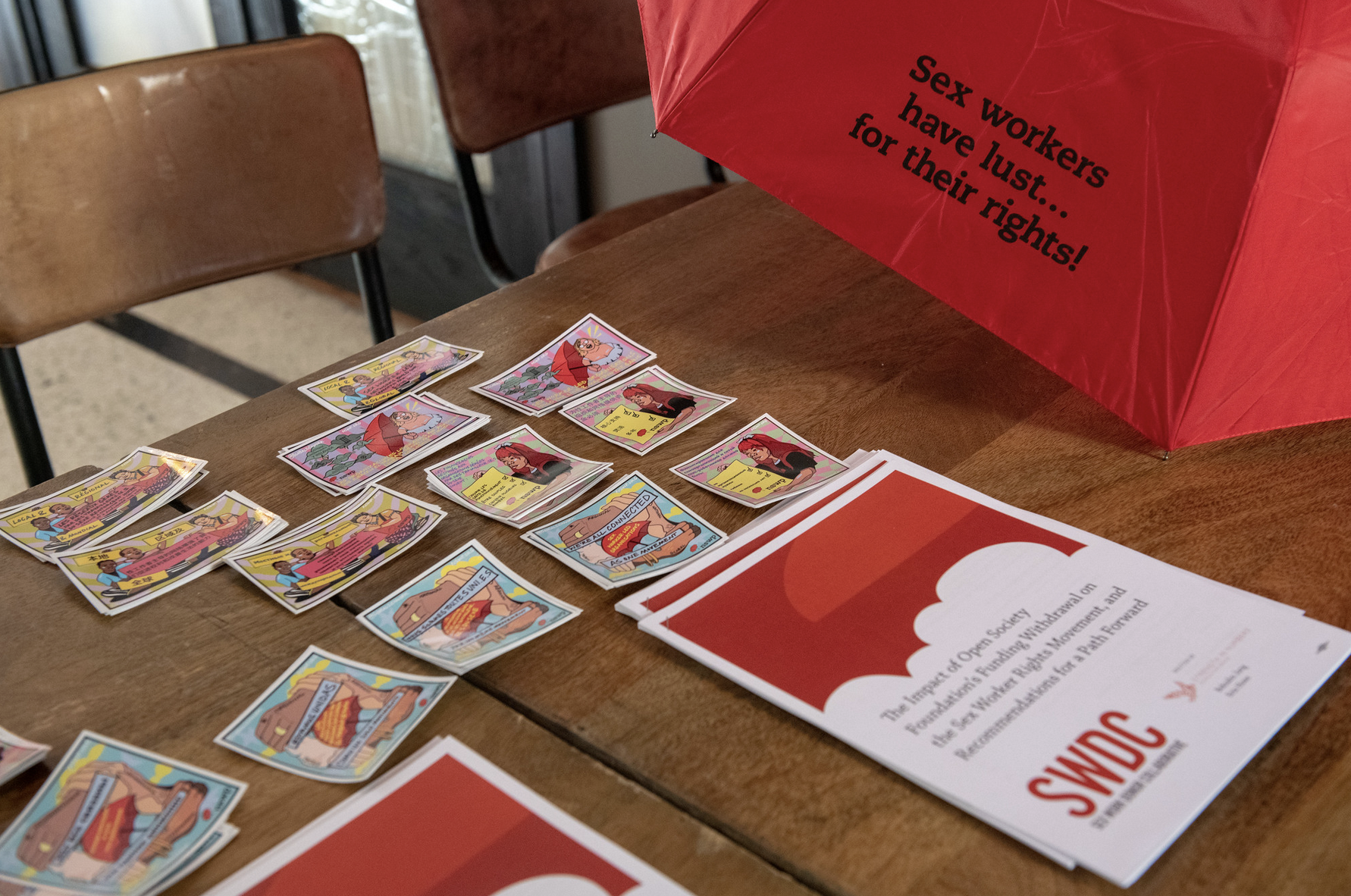The Dire State of Funding for Black Feminist Movements — and What Donors Can Do About It
By Hakima Abbas, co-founder of the Black Feminist Fund and co-executive director of AWID, and Kellea Miller, HRFN deputy director.
This article was originally published by Inside Philanthropy on August 5, 2021.
Photo by: Chona Kasinger on Disabled And Here project page.
Description: A Black non-binary person in a black and pink power wheelchair has their eyes closed and is smiling while being hugged from behind by a Black femme wearing compression gloves. The two have their hair tangled together from the embrace.
—

The current state of funding for Black feminist organizing is bleak.
Though Black feminists have been trailblazers in the fight for justice in every major social movement, funders do not drive large-scale resources to Black-led organizing by women, girls and gender non-conforming people. Black women’s leadership in social movements has faced what scholars call intersectional invisibility, in which “Black women are often overlooked in people’s conversations about racism and sexism even though they face a unique combination of both of these forms of discrimination simultaneously.” Even as funders have committed hundreds of millions of dollars for racial justice in the last year in the U.S alone, there are about whether this will reach Black social movements and, especially, those working at the intersections with gender justice.
So what would it take for resources to reach Black feminist movements? What would it look like for Black feminists around the world to have robust funding that matches their resilience, creativity and leadership?
Following the money
To address the under-resourcing of Black feminist activism, we first must understand the scope. Human Rights Funders Network (HRFN) and the Black Feminist Fund (BFF) have been working together to uncover what we know—and what we don’t—about funding for Black feminist movements.
Based on preliminary analysis of the most recent available funding data (2018), the evidence strongly suggests a pattern of dire under-resourcing for Black feminist activism, even within the field of human rights funding.
Of $3.7 billion in over 27,000 human rights grants made in 2018, 1,405 grants totaling $178 million identified both women, girls, or trans people and Black, Afro-descendent, or African people as target populations. (We included grants that were coded for people of African descent and/or contained the words “Black” or “of color” in the grant description, so the figures may capture some funding for people of color who aren’t of African descent.) These approximations are based on funders’ own, often incomplete, reporting on the populations they aim to support.
Though imperfect, the initial findings are a warning call: Funding for Black women, girls, and trans people constitutes roughly 5% of human rights funding, both in dollars and number of grants.
Putting this into context, human rights grants make up 2% to 7% of foundation funding globally. Even at the most broadly defined, this means that Black feminist movements receive somewhere between 0.1% and 0.35% of annual grant dollars from foundations.
For a movement so powerfully located at the center of change, these numbers point to an egregious lack of support. In a year when funders have committed nearly a billion dollars to racial justice in the U.S. and globally, what and how they fund will determine whether this is lip service or a vital source of resources for transformative social change. The longstanding failure to reach Black feminist movements should be a cause for concern and action.
There are however some hopeful signs. Of the $763 million in grants to women, girls, and/or trans people, those grants also coded to Black, Afro-descendent, or African people make up 23% of total funding. That is to say: while Black feminist movements are shamefully underfunded, feminist funders appear to be more actively funding Black leadership.
The global picture
This situation is more acute when we unpack where the grants go around the world.
Of human rights grants coded as going to “Sub-Saharan Africa,” half also focus on women, girls and trans people. In raw numbers: 1,225 of the 2,487 grants in the region, totaling $136 million, are coded for women and girls and/or transgender people. With Sub-Saharan Africa representing the largest number of grants in the Global South and East, this trend is promising. However, it’s also important to note that most human rights funding earmarked for Africa was not given to organizations based in those regions.
Excluding grants in Sub-Saharan Africa, a mere 180 grants for $42.7 million are coded for Black, Afro-descendent, or African women, girls, and/or transgender people in every other region of the world. The small number of grants itself should be a warning sign. More specifically, only $18 million was donated to support work in the Caribbean. There are two potential inferences to draw from this: either there are gaps in the ways in which data is collected and shared, or Black and Afro-descendent Black feminist agendas in the diaspora are deeply under-resourced. The reality is likely a combination of both.
Two stark figures also stand out in our preliminary analysis of the data. The first is that only one single grant to the Middle East and North Africa was coded as supporting Black women, girls and/or transgender people. When we spoke to the Black Feminist Fund’s board member Mai Panaga, a Black feminist in Egypt, she said:
“It is shocking that across 17 countries, only a single grant was made to Black women, girls, and/or transgender people. Black organizing has been growing for many years in different countries all over MENA. Black activism in the region is working at the intersections of gender, sexuality, migration, forced displacement, occupation, labor rights, racism and anti-blackness, among others. A single opportunity to support Black feminisms in the MENA region is an outrageous reflection of the ways we are disfranchised and invisibilized even within the funding landscape. Resourcing should be there for Black feminists in MENA to grow and sustain their activism as well as to contribute to the global Black movement.”
Related to the global Black movement that Mai mentioned, the second data point is that only one global grant went to support Black women, girls and/or transgender people. This despite the fact that Black feminist organizing has always been transnational and deeply internationalist. Black feminist activism and agendas are global, while rooted in the local, and funding should reflect that.
A word about the data
Data is imperfect, but philanthropy can do better.
The findings of our preliminary analysis speak to a huge pattern of under-resourcing of the rich tapestry of Black feminist activism. There is also an important conclusion to draw about the ways donors are making and reporting on their grants: they are not using an intersectional lens.
A report from AWID states, “funding is often done in silos, with money allocated to distinct issues, and does not match the richness and diversity of cross-issue organizing that characterizes modern social movements. These resources are moving in the ecosystem, but missing our movements.” HRFN’s forthcoming research on intersectionality (late 2021) finds that grants for human rights that specify any “population” focus, two-thirds identify a single population. Of the remaining grants, only 6% name three or more populations as beneficiaries. The funding for Black feminist organizing illustrates this gap poignantly.
In our analysis, we’ve been able to draw conclusions about the funding available to Black feminist movements, but coding based on populations, i.e., who the grants are intended to serve, doesn’t tell us about the leadership and agency of these populations in the human rights activities. As Candid’s Jacob Harold describes, it is impossible to tell whether these so-called populations translate into Black feminist-led and -serving activism. For transformative social change to happen, Black feminist leadership must be trusted, valued and resourced.
What Can We Do?
First, philanthropy’s lack of transparency and accountability mean that tracking the funding is extremely difficult. Though funders must report their grants for tax purposes, there is little incentive to accurately account for the type of work a foundation supports. As we sit between movements and the resources they need, a call for accountability must include better data on what is and is not funded in the field of philanthropy.
Second, we must continue to take seriously the need to move beyond siloed funding streams. For decades, social movements have called on funders to stop funding single issues or identities. If funders want to address more effectively the under-resourcing of Black feminist action, they must bridge portfolios in meaningful ways, report on funding in ways that capture potential areas of interconnection, and understand that without expressly prioritizing Black feminist movements, intersectional invisibility for Black feminists will continue.
Finally, and most importantly, we can and must insist on more and better funding for Black feminist agendas. The Black Feminist Fund is born out of the reality that several barriers exist for Black feminists to access the funding that their bold vision deserves. The BFF is the first global fund of its kind solely dedicated to significantly increasing funding for Black feminist movements. As one of their first major offerings, the BFF has begun groundbreaking in-depth research looking at where the money is for Black feminist movements (forthcoming end 2021). This preliminary analysis born out of partnership between HRFN and the BFF begins to reveal what Black feminist movements already know: there is chronic underfunding despite the bold and critical contributions Black feminists make to human rights and social change. This needs to change.

Hakima Abbas
Hakima Abbas is an African feminist who has been active in social movements for two decades. She is co-founder of the Black Feminist Fund (BFF), which is dedicated to significantly increasing the resources available to Black feminist movements globally and co-executive director of global feminist organization AWID.
Kellea Miller
Kellea Miller is a feminist researcher and advocate for just resourcing of social movements, specializing in grantmaking and strategy development. Kellea is deputy director of Human Rights Funders Network, a global network of almost 450 institutions across 70 countries committed to advancing human rights through effective philanthropy.
—
HRFN gratefully acknowledges our co-authors at the Black Feminist Fund and our data partners at Candid.



